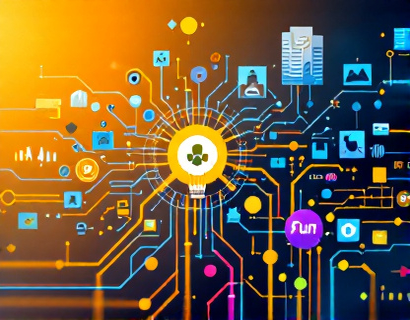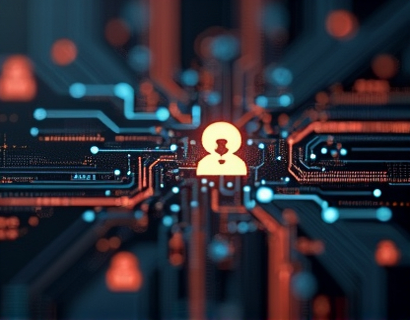Transforming Education with AI-Driven Chatbots: A Comprehensive Guide for Students, Families, and Educators
The integration of artificial intelligence in educational settings has opened new avenues for learning, making knowledge more accessible and personalized than ever before. Among these innovations, AI-driven educational chatbots stand out as a powerful tool, offering specialized insights tailored to the needs of students, families, and educators. This article delves into the capabilities and benefits of these chatbots, focusing on how they provide industry-specific knowledge and services while ensuring a safe and educational experience for all users.
Understanding AI-Driven Educational Chatbots
AI-driven educational chatbots are sophisticated software applications designed to simulate conversation through natural language processing and machine learning algorithms. These chatbots can understand and respond to user queries in a human-like manner, providing instant and accurate information on a wide range of topics. In the context of education, these chatbots serve as virtual assistants that can guide students through complex subjects, offer personalized learning recommendations, and provide families and educators with valuable insights into industry trends and best practices.
Specialized Insights for Students
For students, AI chatbots are invaluable resources that can enhance their learning experience. These chatbots can offer detailed explanations of academic concepts, provide step-by-step solutions to problems, and even simulate real-world scenarios to help students apply theoretical knowledge in practical contexts. The specialized nature of these chatbots means they can cater to various subjects and levels of complexity, ensuring that students receive content that is both challenging and appropriate for their stage of learning.
One of the key advantages of AI chatbots for students is their availability 24/7. Unlike traditional tutoring methods, students can access these chatbots at any time, allowing for flexible and self-paced learning. This is particularly beneficial for students who may need extra help outside of regular classroom hours or who prefer to learn at their own speed.
Content Verification and Accuracy
A critical aspect of educational chatbots is the verification of the content they provide. Misinformation can be detrimental to a student's understanding and can lead to misconceptions. To address this, reputable chatbot platforms implement rigorous content verification processes. This involves cross-referencing information with trusted educational resources, consulting with subject matter experts, and continuously updating the database to reflect the latest research and developments in various fields.
Moreover, these chatbots can be designed to provide sources for the information they share, enabling students to verify the accuracy of the data on their own. This not only enhances the credibility of the chatbot but also fosters critical thinking and research skills in students.
Insights for Families
Families play a crucial role in a student's educational journey, and AI chatbots can serve as a bridge between home and school. For parents and guardians, these chatbots offer insights into their child's progress, recommend educational resources, and provide guidance on how to support learning at home. By accessing the chatbot, families can stay informed about industry trends, educational standards, and best practices in teaching and learning.
One of the unique features of educational chatbots is their ability to tailor information to the specific needs of each family. For instance, a chatbot can provide personalized recommendations based on a student's strengths, weaknesses, and learning preferences. This personalized approach ensures that families receive relevant and actionable advice, empowering them to make informed decisions about their child's education.
Supporting Diverse Learning Needs
AI chatbots are particularly beneficial for families dealing with diverse learning needs. They can offer strategies and resources for supporting students with special educational requirements, such as those with dyslexia, ADHD, or other learning disabilities. By providing tailored advice and connecting families with specialized services, these chatbots help create an inclusive learning environment that caters to all students.
Additionally, chatbots can facilitate communication between parents and educators, ensuring that everyone is on the same page regarding a student's progress and needs. This collaborative approach can lead to more effective interventions and support systems, ultimately benefiting the student's overall educational experience.
Insights for Educators
Educators are the backbone of the educational system, and AI chatbots can significantly enhance their capabilities. For teachers, these chatbots serve as valuable tools for lesson planning, classroom management, and professional development. By accessing the chatbot, educators can find curated resources, lesson plans, and teaching strategies that are aligned with current educational standards and industry practices.
One of the most significant benefits for educators is the ability to stay updated on the latest educational technologies and methodologies. AI chatbots can provide insights into emerging trends, such as gamification, virtual reality, and adaptive learning, helping teachers integrate these tools into their classrooms effectively. This continuous learning ensures that educators are equipped to meet the evolving needs of their students.
Collaboration and Community Building
Educators can also use chatbots to connect with colleagues and build a professional community. These platforms can facilitate discussions, share best practices, and provide a space for collaborative project development. By fostering a sense of community, chatbots help reduce isolation and encourage innovation in teaching methods.
Furthermore, chatbots can assist in administrative tasks, such as grading, attendance tracking, and parent communication. By automating these processes, educators can focus more on teaching and less on paperwork, leading to a more fulfilling and efficient work environment.
Ensuring a Safe and Educational Experience
As with any technology, ensuring the safety and appropriateness of AI chatbots in educational settings is paramount. Reputable chatbot platforms prioritize user safety by implementing strict content moderation policies and using advanced algorithms to filter out inappropriate or harmful content. This creates a secure environment where students, families, and educators can interact without concerns.
For younger users, chatbots can be designed with child-friendly interfaces and content that is age-appropriate. These child versions of chatbots adhere to strict guidelines to ensure that the information provided is not only educational but also suitable for children. This includes using simple language, avoiding complex concepts, and incorporating engaging elements like emojis and interactive quizzes.
Parental Controls and Privacy
To further enhance safety, chatbot platforms often offer parental controls that allow parents to monitor and manage their child's interactions. These controls can include setting time limits, blocking certain topics, and reviewing chat history. Additionally, these platforms must comply with privacy regulations, ensuring that user data is protected and not misused.
Transparency is key in building trust with users. Reputable chatbot providers clearly outline their data privacy policies and obtain necessary consents, ensuring that all users are aware of how their information is used and stored.
Conclusion
AI-driven educational chatbots represent a significant advancement in the way we approach learning and education. By providing specialized insights, ensuring content verification, and offering a safe and educational experience, these chatbots cater to the diverse needs of students, families, and educators. As technology continues to evolve, the potential for AI in education is vast, promising a future where learning is more personalized, accessible, and effective.
While the benefits are clear, it is essential to approach the implementation of these chatbots with careful consideration and collaboration among all stakeholders. By working together, we can harness the power of AI to create a more inclusive and effective educational landscape for everyone.











































